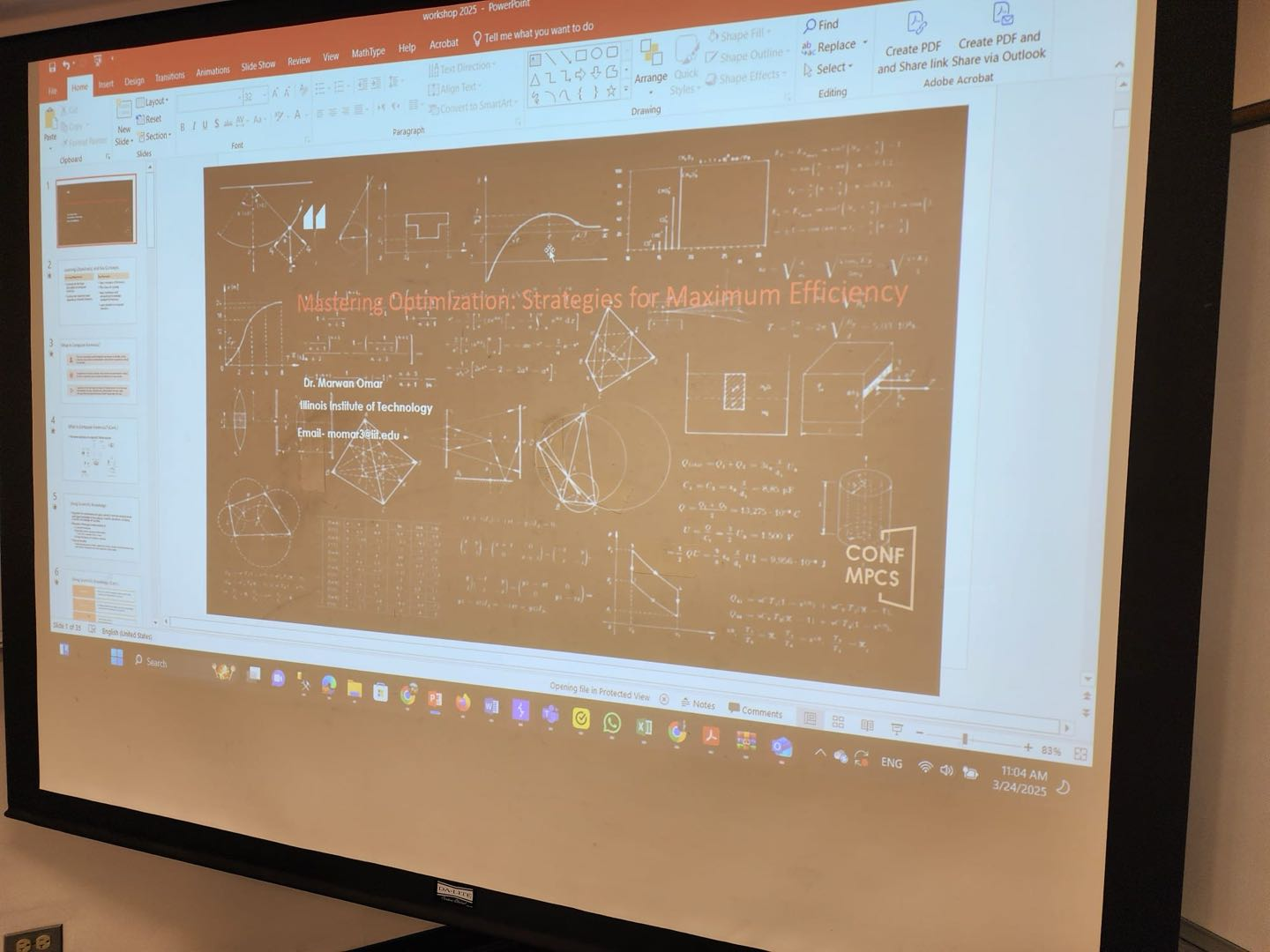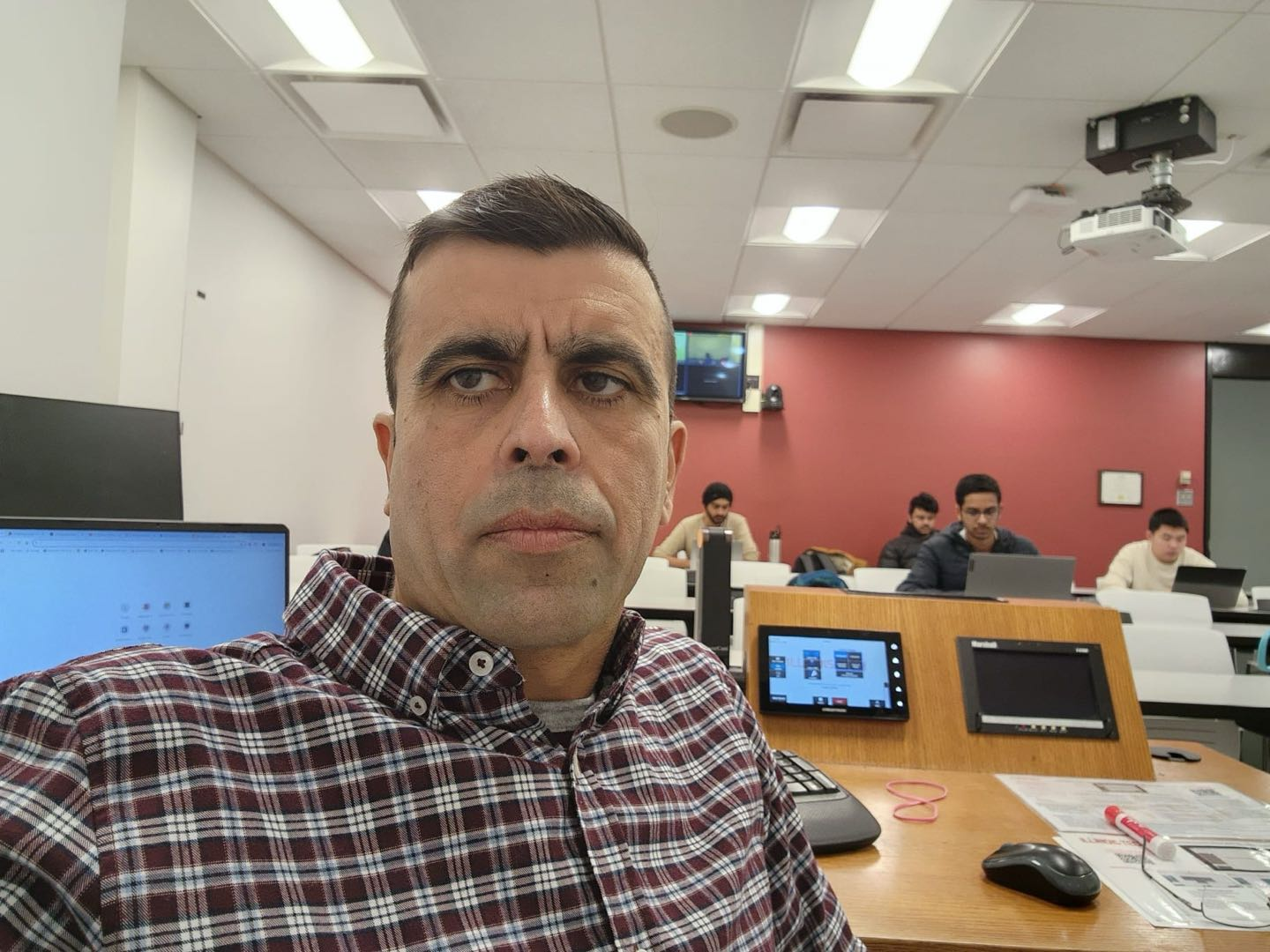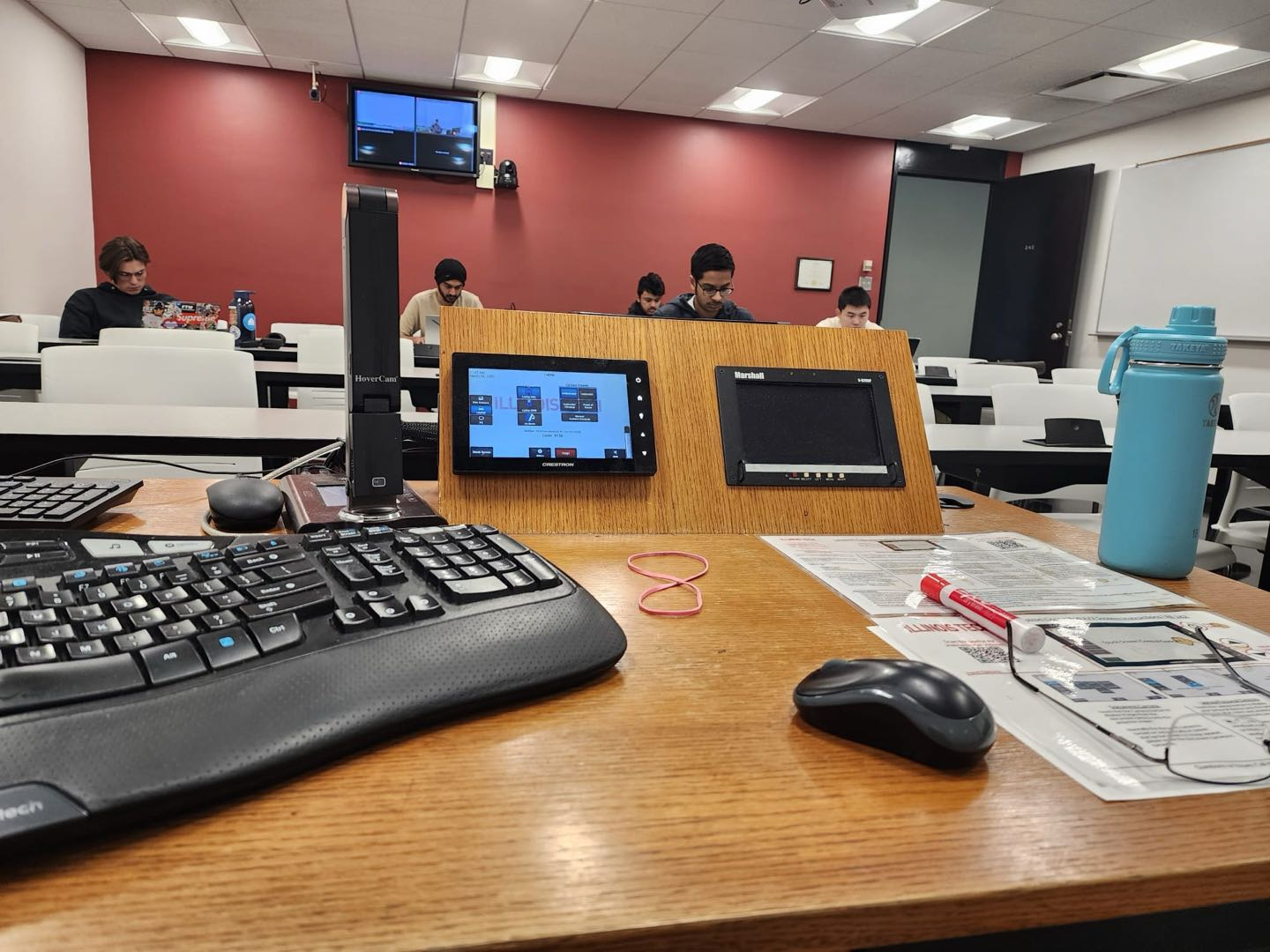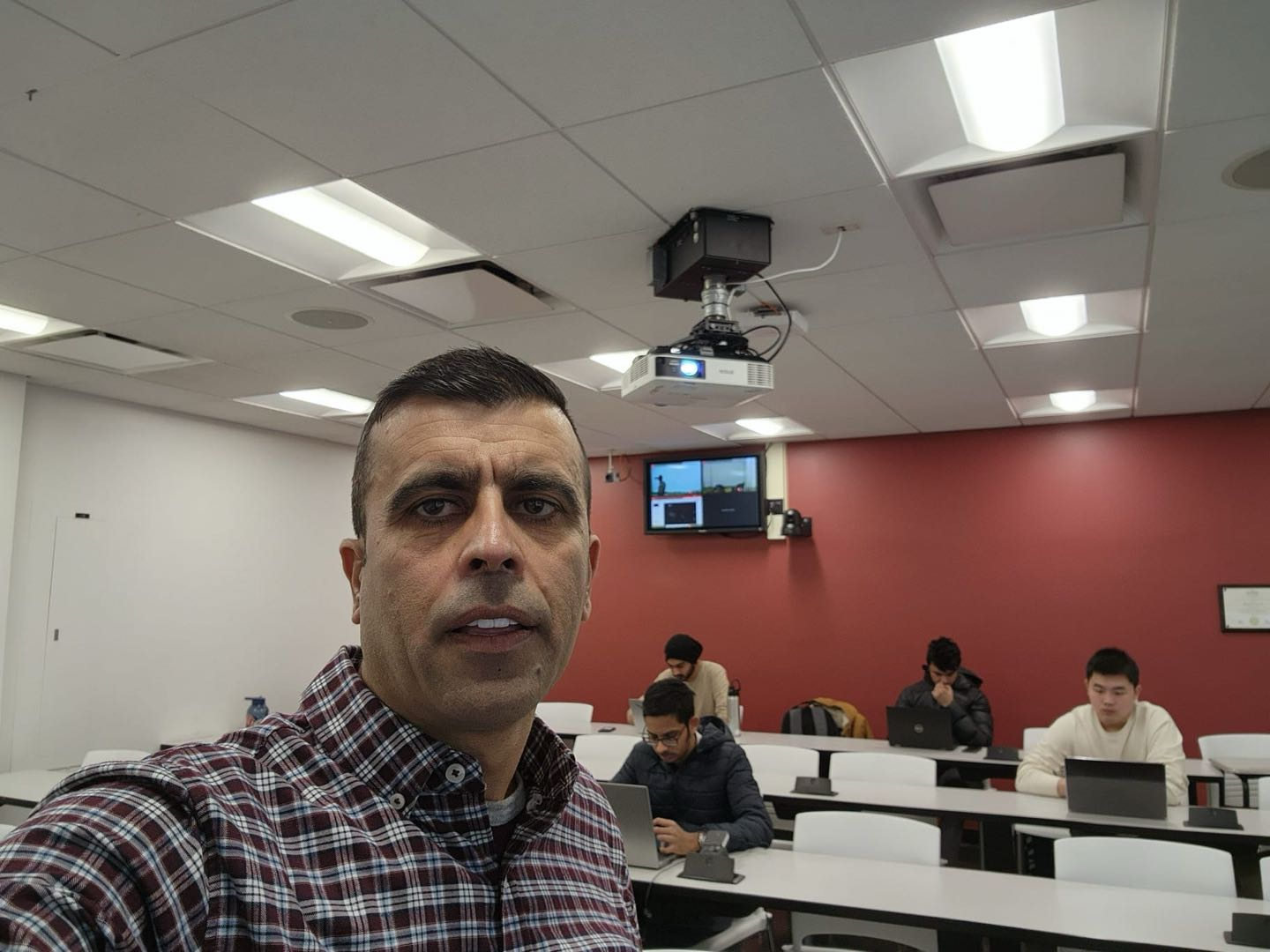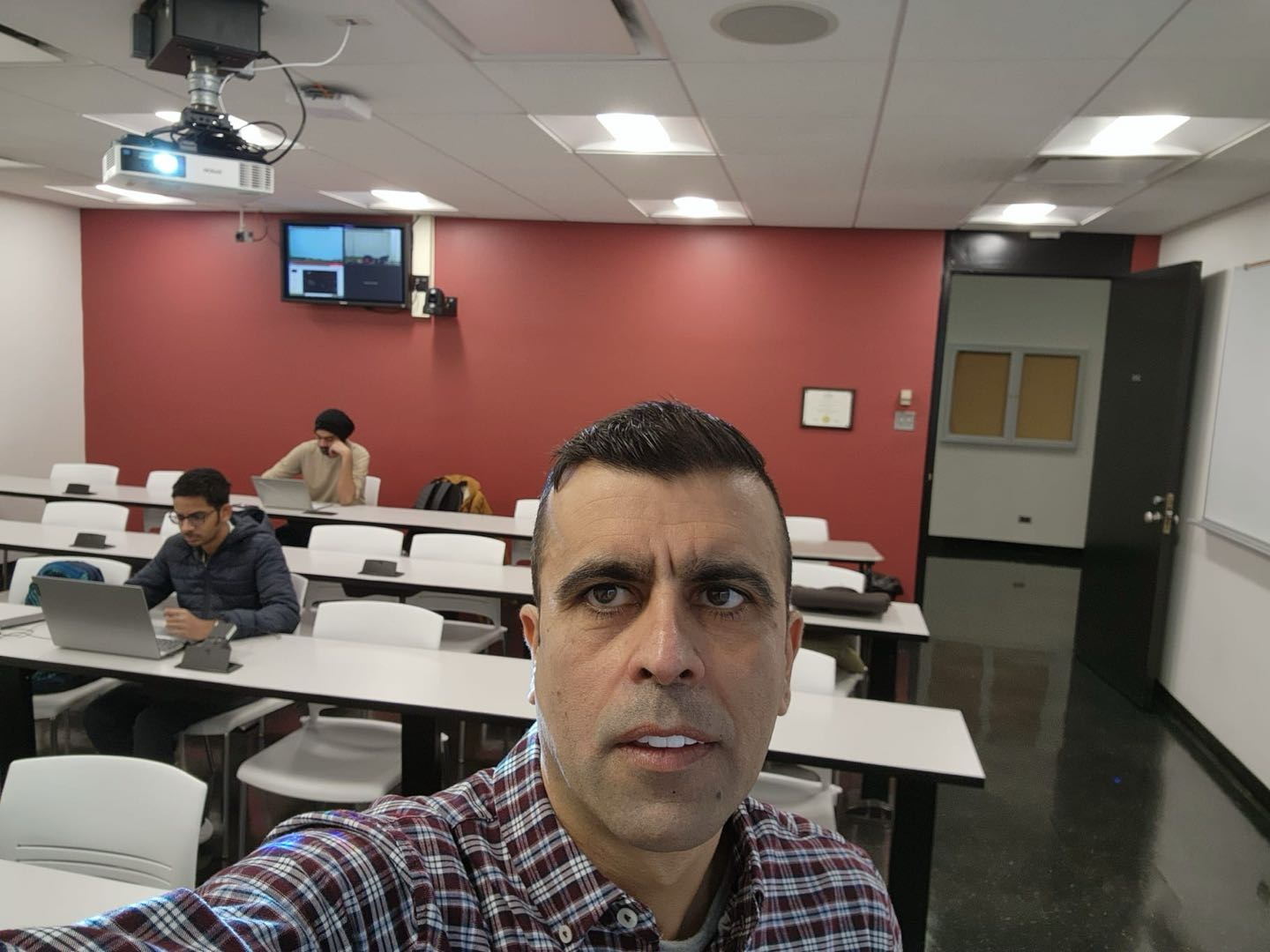Call for Papers
Background:
Optimization is a critical aspect of problem-solving and decision-making across diverse
fields, including engineering, business, data science, and logistics. At its core,
optimization involves selecting the best possible solution from a set of alternatives while
considering constraints and objectives. As industries evolve, the demand for optimized
processes, systems, and solutions has grown exponentially, making mastery of optimization
techniques essential for professionals and researchers alike.
This symposium aims to bridge the gap between theoretical foundations and practical
applications of optimization. It introduces participants to a range of techniques, including
classical methods like linear and nonlinear programming, and modern approaches such as
genetic algorithms, simulated annealing, and machine learning-based optimizations. These
techniques are widely used to solve real-world challenges, such as minimizing costs,
maximizing efficiency, or optimizing resource allocation.
Designed for professionals, students, and researchers, the symposium offers hands-on
experience with tools and frameworks for implementing optimization strategies. It emphasizes
problem formulation, algorithm selection, and result interpretation to ensure participants
gain a comprehensive understanding of how to approach optimization challenges effectively.
By equipping participants with state-of-the-art techniques and practical knowledge, this
symposium prepares them to excel in their respective fields, fostering innovation and
enhancing decision-making capabilities.
Goal/Rationale:
The primary goal of this symposium is to empower participants with the knowledge and skills to
effectively apply optimization techniques to solve complex problems across various domains. By
bridging theoretical concepts with practical applications, the symposium aims to enhance
participants' understanding of optimization methods and their real-world relevance.
Specific goals include:
- Understanding Fundamentals: To provide a solid foundation in optimization concepts,
including linear programming, nonlinear optimization, and heuristic methods.
- Practical Application: To equip participants with the ability to formulate optimization
problems, select appropriate algorithms, and interpret results effectively.
- Tool Proficiency: To introduce participants to advanced computational tools and frameworks
for implementing optimization techniques efficiently.
- Problem-Solving Skills: To foster critical thinking and problem-solving abilities by
engaging participants in hands-on exercises and real-world case studies.
- Industry Relevance: To demonstrate the importance of optimization in driving innovation,
improving efficiency, and making informed decisions in professional and research settings.
This symposium aspires to enhance participants’ expertise and confidence in leveraging
optimization for impactful outcomes.
Scope and Information for participants:
This symposium provides a comprehensive exploration of optimization techniques, catering to a
diverse audience, including professionals, students, and researchers from fields such as
engineering, data science, operations research, and business analytics. It covers a broad scope,
from foundational principles to advanced methods, ensuring participants of varying expertise
levels benefit from the program.
The symposium delves into core topics, including linear and nonlinear optimization, heuristic
methods like genetic algorithms and simulated annealing, and emerging trends such as machine
learning-driven optimizations. Participants will engage in hands-on activities, learning to
formulate optimization problems, apply algorithms, and interpret results using industry-relevant
tools and software.
By the end of the symposium, participants will gain practical knowledge to solve real-world
challenges, such as optimizing processes, resource allocation, and decision-making strategies.
Networking opportunities and collaborative exercises further enrich the learning experience,
fostering innovation and professional growth in optimization applications.
Topics:
The main topics of this symposium are listed below.
Computational Simulation
- Adaptive Control and Non-Linear Control
- Artificial Intelligence
- Computational Intelligence
- Design, Analysis and Applications of Optimisation Algorithms
- Deterministic, Dynamic, Stochastic, Robust and Combinatorial
Optimisation Models
- High Performance Computing
- Information Science
- Intelligent Control, Neuro-control, Fuzzy Control
- Machine Learning
- Mathematical Modeling and Simulation
- Nano- and Bio- Mechanics
- Optimization Techniques
- Robotics and Automation
- Smart Structures and Health Monitoring
- Soft Computing
- Structural Optimization
- Theoretical and Empirical Studies of Computational Methods, Models and
Empirical
Analysis
Meanwhile, submissions aligned with the overall conference theme are also welcome.
Mathematical Physics
- Dynamical Systems
- Equilibrium Statistical Mechanics
- General Relativity
- Integrable Systems
- Many-body Quantum Systems and Condensed Matter Physics
- Nonequilibrium Statistical Mechanics
- Partial Differential Equations
- Probability and Random Structures
- Quantum Field Theory
- Quantum Information
- Quantum Mechanics and Spectral Theory
- String Theory and Quantum Gravity
Applied Physics
- Accelerator Physics
- Accelerator Research and Development
- Acoustics, Noise and Vibration
- Applications of Particle Trapping
- Biophysics, Medical Physics
- Detectors and Data Handling
- Engineering Physics
- Instrumentation and Control Components
- Magnetic Devices and Materials
- Materials Physics
- Mechanics, Rheology and Tribology
- Nano and Metamaterials
- Neuromorphic Computing
- Nuclear Physics
- Quantum Chromodynamics and Quantum Computers
- Spin Dynamics
- Statistical Mechanics
- Stealth Technology
- Storage Ring Physics
- Systems and Automation Thermodynamics
Mathematics and Applied Mathematics
- Algebra and Its Application
- Applied Partial Differential Equations
- Bayesian Inference
- Control Theory
- Discrete Applied Mathematics
- Fluid Dynamics
- Fuzzy Mathematics and Its Applications
- Geometry
- Image Processing
- Integral Equations
- Nonlinear Problems in Mechanics
- Numerical Analysis
- Optimization and Operational Research
- Planning and Scheduling
- Probability Theory
- Regression Analysis Estimation Theory
- Sampling Theory
- Statistics
- Stochastic Processes
Prospective authors are kindly invited to submit full papers that include title,
abstract, introduction, tables, figures, conclusion and references. It is
unnecessary to submit an abstract in advance. Please submit your papers in English.
Each paper should be no less than 4 pages. One regular registration can cover a
paper of 6 pages, and additional pages will be charged. Please format your paper
well according to the conference template before submission. Paper Template Download
Please prepare your paper in both .doc/.docx and .pdf format and
submit your full paper by email with both formats attached directly to [email protected]
Publication:
Accepted papers of the symposium will be published in Theoretical and Natural Science
(TNS)
(Print ISSN 2753-8818), and will be submitted to Conference Proceedings Citation
Index (CPCI), Crossref, CNKI, Portico, Engineering Village (Inspec), Google Scholar,
and other databases for indexing. The situation may be affected by factors among databases
like processing time, workflow, policy, etc.
Publication info
Title: Theoretical and Natural Science (TNS)
Press: EWA Publishing, United Kingdom
ISSN: 2753-8818, 2753-8826 (electronic)
This symposium is organized by CONF-MPCS 2025 and it will independently proceed the submission
and publication process.
* The papers will be exported to production and publication on a regular basis. Early-registered
papers are expected to be published online earlier.
Highlights
This symposium on Optimization Techniques offers a structured and engaging approach to
understanding and applying optimization methods across various domains. It bridges the gap
between theory and practice, empowering participants to tackle complex problems with
innovative
solutions. The program covers essential topics, including linear and nonlinear optimization,
heuristic approaches like genetic algorithms and simulated annealing, and modern techniques
such
as machine learning-based optimizations.
Participants will gain hands-on experience with cutting-edge tools and frameworks to
implement
these techniques effectively. Through interactive sessions, case studies, and collaborative
problem-solving activities, attendees will learn to formulate optimization problems, choose
appropriate algorithms, and analyze results.
The symposium is designed for professionals, researchers, and students seeking to enhance
their
decision-making and resource management skills. By the end, participants will be equipped
with
the knowledge and confidence to apply optimization strategies in real-world scenarios,
driving
innovation and improving efficiency in their respective fields.
Access to Symposium: CONF-MPCS 2025
Symposium - Chicago - YouTube


